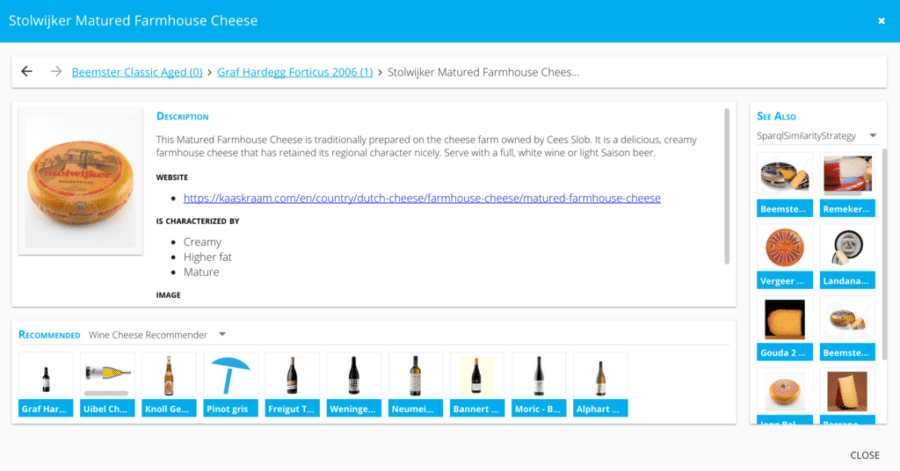Will Artificial Intelligence make subject matter experts obsolete?
Imagine you want to build an application that helps to identify wine and cheese pairings. Who will perform best? Applications solely based on machine learning, those ones which are based on experts’ knowledge only, or a combination of both?

Most of the machine learning algorithms were developed to solve a well-known problem in AI, which is called the ‘Knowledge Acquisition Bottleneck’. It deals with the question how subject matter experts (SMEs) can be enabled to work together with data scientists on knowledge models in an efficient and sustainable way (See also: Taxonomies and Ontologies – The Yin and Yang of Knowledge Modelling).
Machine learning algorithms learn from data, and by that, successful implementations are obviously strongly related to data quality and the approaches taken to encode the semantics (meaning) of data. Semantic Knowledge Graphs help to increase data quality substantially. They also kick-start your machine learning project. A recently published article by Yanko Ivanov puts it in a nutshell: “A machine learning algorithm is a toddler who first needs to learn the basics of your language.”
In recent months, we have observed a trend on the market: Various organizations have implemented their first versions of applications based on machine learning. In a second iteration they are now looking for technologies and methodologies that help them to tackle these three issues:
- Machine learning algorithms often do not get enough signals to ‘understand’ the correct meaning of the data, e.g. to dissolve ambiguities. Precision lags behind expectations.
- Cognitive platforms often need sensitive data to learn from it, which should not be processed in the cloud.
- Extensive experiences and knowledge of SMEs cannot be encoded and will be wasted when not included in the algorithms
AI is more than a technology
Facing the ‘Knowledge Acquisition Bottleneck’ also means that experts’ knowledge is recognized as an essential asset of any organization. This golden treasure shouldn’t be transferred into a cloud to be processed by some machines out of our control. Instead, implementing a good mix of various technologies and methodologies including SMEs efficiently is key. A good AI strategy is not just about better results being generated immediately, it’s a question of how we want to establish a working cooperation between people and machines.
A recently published IDC White Paper discusses socio-technical aspects of Artificial Intelligence and gets to the heart of the issue: “Embracing semantic technologies to deliver cognitive solutions can enable an organization to substantially reduce its dependency on developers and specialized IT professionals. Once the foundation of semantic data management is in place, the adoption of data-driven applications will be driven by domain experts and business users.”.
